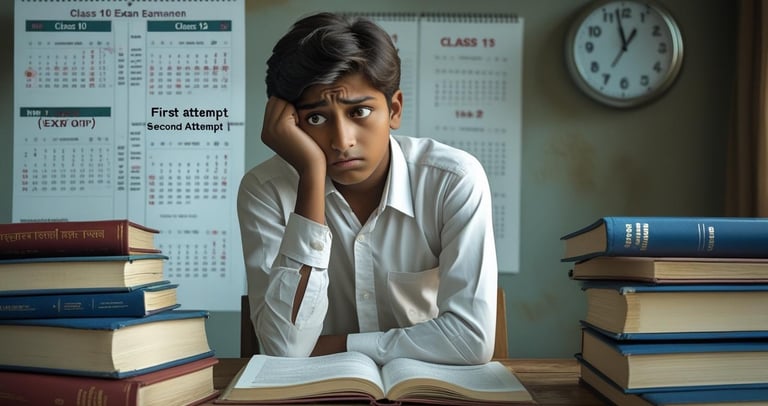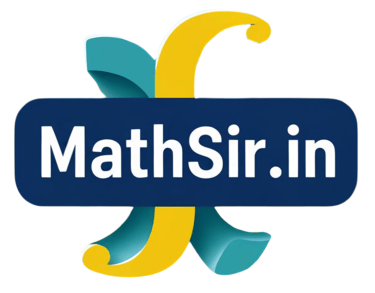
CBSE's New Exam Rule Explained – Who Really Benefits from Two Board Attempts?



CBSE Two Board Exams Policy from 2026 – A Mixed Experience for Students and Teachers
From the academic year 2026, the Central Board of Secondary Education (CBSE) will implement a new system where students of Class 10 and Class 12 can appear for board exams twice in the same year. This change is inspired by the National Education Policy (NEP) 2020, which promotes flexibility and student-centric assessment.
Why CBSE Introduced Two Board Exams a Year
The idea behind this change is to reduce academic pressure, give students a second chance, and improve overall learning outcomes. Students can choose the better score from the two attempts, similar to the JEE Main model.
However, this new rule has led to confusion among students, especially those preparing for competitive exams like IIT JEE and NEET. Many parents and schools are still unsure how this policy will work in real-life academic timelines.
Benefits of Two CBSE Board Exams
1. Second Chance for Slow Learners and Average Students
Students who struggle to score well in the first attempt can use the second exam as a backup to improve marks without losing a year. This is especially helpful for average students and slow learners.
2. Reduced Stress for Anxious Students
Some students perform poorly due to exam fear, health issues, or mental pressure. The new rule gives them a second opportunity to perform better, which helps build confidence and emotional strength.
3. Subject-wise Focus and Improvement
Students who are weak in one or two subjects get time to prepare selectively and re-attempt only those subjects in the second exam. This makes the system more flexible and learner-friendly.
4. No Year Loss
Unlike the earlier system where students had to repeat an entire year after failing, now they can appear again within the same academic cycle, saving valuable time and motivation.
Disadvantages of Two Exams – A Toppers' Point of View
1. Competitive Exam Preparation Gets Affected
Most coaching institutes like Allen, Aakash, Narayana, and Chaitanya start their Class 11 or repeaters' batch for JEE/NEET in the first or second week of April. Students who wait for second board exams in May will lose this preparation time.
2. Less Time Between Results and Second Attempt
The results of the first board exam are expected by April 25. If the second board exam is in May, students get hardly 2–3 weeks to study again, that too without school support.
3. No School Support in Second Attempt
For the first exam, schools provide full classroom teaching, doubt sessions, mock tests, and revision. But for the second attempt, students may be on their own, without structured support.
4. Learning Environment Disruption
In April and May, most students move on to Class 11 or start their coaching classes. The few who stay back to write the second board exam feel isolated, both emotionally and academically.
5. Confusion in Planning Future Studies
For Class 12 students, writing the second board exam could delay their entrance exam preparation, counselling, or admissions. This creates pressure and affects career planning.
Practical Issues Students May Face
Students who are already preparing for JEE or NEET 2026 might skip the second board attempt even if they perform average, due to lack of time.
There is a fear that students may waste time waiting for results or second attempts, while others move ahead.
Some schools may not offer support or resources for second-board batches, leaving students alone.
A Teacher’s Suggestion – Use the Policy Wisely
As a teacher with years of experience, I believe this policy should be used only by those who need it. For students who are confident and already scoring well, there is no real need to appear for both attempts.
Instead, they should focus on the next academic level, especially if they are preparing for national-level competitive exams. Toppers must not lose momentum by waiting for another exam.For average students or those who had health or stress issues, this second chance is a useful support system
What CBSE Must Do Next
Publish clear timelines for first and second exams.Ensure results of the first attempt are declared at least 4–6 weeks before the second exam.Provide schools with guidelines to support second-batch students.Prevent coaching and school schedule clashes with entrance exam timelines.
Final Thought – Not One Rule for All
This is not a one-size-fits-all solution. The two-board exam system can be a game-changer for many students if planned well, but it can also become a burden if misunderstood or misused.
Parents, teachers, and students must work together to decide whether the second board exam is necessary. Smart planning and self-awareness are the keys to making the most of this policy.
